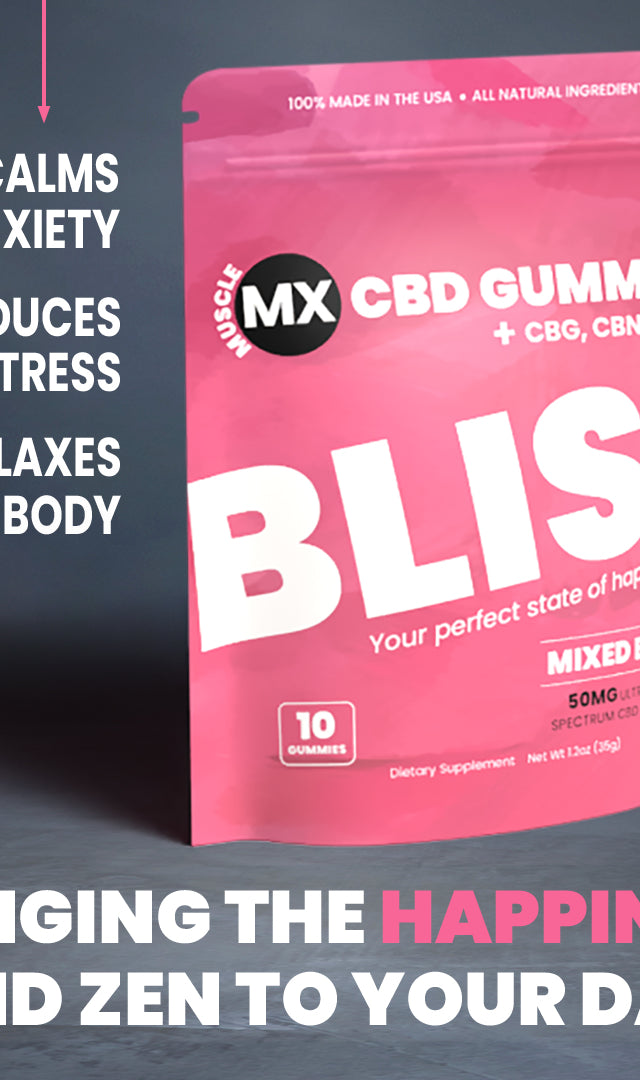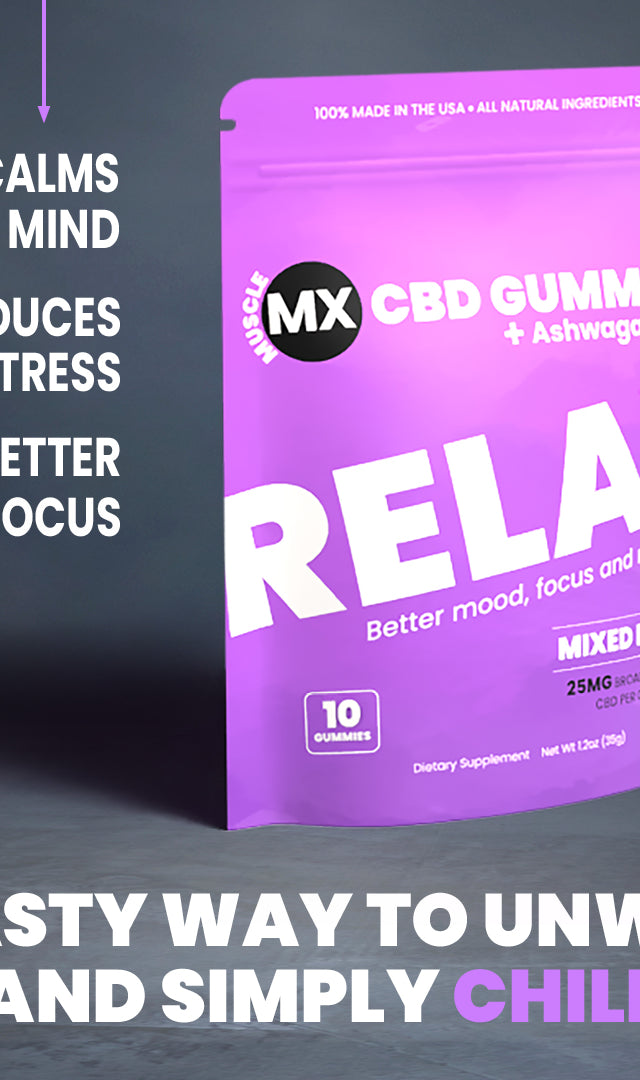47 Self-Reflection Questions That Will Change Your Life
Key Takeaways
Self-reflection through strategic questioning breaks the cycle of unconscious living and transforms how you view yourself and the world around you.
-
Daily self-reflection reduces negative thought patterns: With 90% of our 50,000+ daily thoughts being repetitions, strategic questioning breaks autopilot living and creates meaningful change.
-
Core values serve as your decision-making compass: Identifying your top 3-5 fundamental principles provides clarity for authentic choices and reduces internal conflict.
-
Confronting what you avoid reveals growth opportunities: Avoidance patterns expose fears and insecurities, but facing them builds resilience and emotional intelligence.
-
Small daily steps create powerful momentum: Asking "What one small step can I take today?" transforms aspirations into achievable progress through consistent action.
-
Emotional awareness is the foundation of self-regulation: Regularly checking your emotional state and physical sensations improves your ability to manage responses and build resilience.
The practice of self-reflection isn't about finding perfect answers but developing a deeper relationship with yourself. These 47 questions serve as gateways to understanding your authentic self, breaking limiting patterns, and creating intentional change.
Introduction
Your mind processes over 50,000 thoughts each day. What's even more remarkable is that more than half of these thoughts carry negative undertones, and about 90% are simply reruns from yesterday.
Most of us drift through life on autopilot, replaying the same mental loops without recognizing the pattern. Self-reflection questions can interrupt this cycle and guide you toward a more intentional way of living. When you take time to explore meaningful questions about yourself, you unlock insights that can shift how you see both yourself and the world around you.
Self-reflection serves as a powerful pathway to self-discovery and growth across many areas of your life, from career decisions to personal relationships. The benefits reach far beyond simple self-awareness — regular reflection can actually decrease negative thinking while deepening your understanding of yourself and others.
We've gathered 47 thought-provoking self-reflection questions that can create real change in your life during 2025. These aren't random inquiries — each question targets specific aspects of your experience, from your core values to the beliefs that might be holding you back, helping you develop the self-awareness needed to recognize your strengths, values, and challenges.
Whether you're feeling stuck in old patterns, searching for clearer direction, or simply want to understand yourself more deeply, these reflection questions will guide you toward meaningful insights and positive change.
What are my core values?
Your core values act like an internal compass, quietly directing your daily choices and shaping who you are at your most authentic level. These aren't fleeting interests that change with the seasons — they represent what you truly stand for and what you'd be willing to defend, even when it's difficult.
What this question reveals
When you ask "What are my core values?" you're uncovering the fundamental principles that actually drive your decisions. Your values aren't just nice ideas you think about occasionally. They're the practical guidelines that determine how you handle conflict, respond to stress, and show up in relationships. They explain why certain environments energize you while others leave you feeling drained, and why some people's actions inspire you while others make you uncomfortable.
Understanding your values also reveals something fascinating — the unconscious culture you create wherever you go, whether in your workplace, friendships, or family relationships.
Why it matters for self-awareness
True self-awareness starts with knowing your values, not taking personality tests or collecting feedback from others. When you understand what genuinely matters to you, you develop a clearer, more honest relationship with yourself. Your choices become more intentional and aligned with who you really are.
This clarity matters because many of our values operate below our conscious awareness. We inherit some from family, absorb others from society, and never question whether they actually fit us. Without deliberate reflection, you might find yourself living by someone else's values — a recipe for feeling unfulfilled no matter how much you achieve.
How to reflect on your values
To discover your core values, try these exercises:
- Think of three specific moments: one when you felt deeply proud, one when you felt genuinely fulfilled, and one when you felt frustrated or angry. What values were being honored — or violated — in each situation?
- Browse lists of common values and notice which ones make you think "Yes, that's important to me"
- Ask yourself: "When I'm at the end of my life, what will tell me I lived well?"
- Consider what principles you'd stand up for, even if others disagreed with you
Remember, the real work comes after you identify potential values. You'll want to narrow your list to your top 3-5 core values. This might feel challenging, but having a focused set ensures your values actually guide your life rather than becoming just another forgotten list.
What makes me feel most alive?
Passion gives our lives momentum and meaning. The question "What makes me feel most alive?" opens a window into understanding what truly energizes you beyond surface-level interests.
What this question reveals
This question uncovers what genuinely fuels you at your core. When you're doing something that makes you feel alive, you often slip into what researchers call "flow" — that state where you become so absorbed that hours pass like minutes. People describe this as filtering out distractions and becoming completely immersed in what they're doing.
These moments of aliveness reveal your natural talents and what draws you in. They function as signposts pointing toward fulfillment and show you where your authentic energy lies.
Why it matters for fulfillment
Understanding what makes you feel alive provides structure and purpose to your days. These energizing activities give you reason to keep learning, growing, and working toward mastery. They also offer refuge during difficult times, serving as both distraction and comfort when you're struggling.
Enthusiasm — some prefer this word over "passion" since it feels less intimidating — adds richness to life and often brings you closer to others who share similar interests. Without these energizing elements, life can feel like you're just going through the motions rather than truly living.
How to reflect on your passions
To identify what makes you feel most alive, ask yourself:
- What activities cause you to completely lose track of time?
- What childhood interests did you naturally gravitate toward?
- What would you eagerly do even without payment?
- When have you felt most energized and present?
Remember, this isn't about finding one perfect passion. It's about discovering, developing, and creatively weaving multiple sources of enthusiasm into your life.
What am I avoiding right now?
Avoidance acts like an invisible wall between you and your potential. Sometimes the most important question isn't what you want to achieve, but what you're deliberately sidestepping.
What this question reveals
This question uncovers the hidden patterns that keep you stuck in place. Avoidance behavior happens when you change your actions to dodge thinking about, feeling, or doing difficult things. These patterns shine a light on your fears, insecurities, and the areas where you feel most uncomfortable. What's interesting is that they often point directly to where your biggest growth opportunities are waiting. When you identify what you're avoiding, you discover your "shadow" elements—those parts of yourself you'd rather ignore—which actually hold the keys to your personal evolution.
Why it matters for growth
Facing what you avoid becomes essential because growth and comfort rarely share the same space. When you choose to tackle challenges instead of dodging them, you build accountability—a quality that sets high-performing individuals apart. This practice of confronting your avoidance patterns strengthens your resilience, adaptability, and emotional intelligence. While avoiding stressors might feel protective at first, it usually makes anxiety worse rather than better. The truth is, avoidance often multiplies problems by letting issues grow unchecked and reducing the social support available to you.
How to reflect on avoidance
To identify what you're avoiding:
- Watch for procrastination patterns—they're often avoidance in disguise
- Notice physical sensations when uncomfortable topics come up
- Look for recurring themes in your life
- Make an honest list of tasks you keep putting off
Once you've identified your avoidance patterns, try taking small steps toward what you're dodging. Remember that temporary discomfort often creates long-term growth. Each time you practice facing what you avoid, you build the mental strength needed to handle future challenges.
What do I need to forgive myself for?
Self-forgiveness — it's one of the most difficult yet powerful steps you can take toward healing. This question asks you to look honestly at what you're holding against yourself and consider why it might be time to let go of that burden.
What this question reveals
When you ask yourself what needs forgiveness, you're shining light on that harsh inner voice that many of us know too well. This question shows you where you might be stuck in cycles of shame, self-punishment, or guilt. It also helps you recognize the important difference between healthy remorse ("I made a mistake") and toxic shame ("I am a mistake") that can keep you trapped in negative patterns. Research shows that people who struggle with self-forgiveness tend to turn negative emotions inward, while those who have trouble forgiving others usually direct those feelings outward.
Why it matters for healing
Self-forgiveness isn't just about feeling better emotionally — it's essential for your physical health too. Studies from Stanford University show that people who learn to forgive themselves report significantly fewer stress symptoms like backaches, muscle tension, headaches, and stomach problems. They also see improvements in their appetite, sleep, energy levels, and overall sense of wellbeing. When you hold onto guilt for too long, it can contribute to anxiety disorders and even heart disease. That's why forgiving yourself isn't selfish — it's necessary for your health.
How to reflect on self-forgiveness
Remember, practicing self-forgiveness takes time and patience. Here's how you can start:
- Acknowledge what happened and take responsibility for your part in it
- Learn to distinguish between guilt (which can help you grow) and shame (which tends to paralyze you)
- Treat yourself with the same kindness you'd show a good friend
- Make amends when possible and appropriate
- Focus on learning from your mistakes rather than replaying them endlessly
Self-forgiveness doesn't mean excusing what happened or pretending it wasn't important. It means accepting what occurred and choosing to move forward with the wisdom you've gained from the experience.
What limiting beliefs am I holding onto?
Sometimes the biggest obstacles we face exist only in our minds, yet they can be just as limiting as any physical barrier. The beliefs we hold about ourselves often determine what we think is possible.
What this question reveals
This question helps you identify the internal stories that might be holding you back. Limiting beliefs act like invisible rules about what you can and cannot do in life. You might notice them in your self-talk — phrases like "I always mess up" or "I never get chosen" that carry a sense of finality. These beliefs often reveal what you've been telling yourself about your capabilities and how the world works.
Why it matters for mindset
When you believe something is impossible for you, you stop trying before you even begin. These mental barriers can keep you from applying for that job you want, starting a conversation with someone new, or pursuing a goal that excites you. Sometimes these beliefs protect you from disappointment, but they also protect you from growth and opportunity.
How to reflect on beliefs
To uncover your limiting beliefs:
- Pay attention to your inner dialogue, especially when you use words like "always" or "never"
- Ask yourself: "What story am I telling myself about why this won't work?"
- Challenge thoughts with: "Is this actually true, or is this just what I believe?"
- Write about the thoughts that consistently stop you from taking action
Remember, these beliefs formed over time through your experiences, but that doesn't make them permanent truths about who you are or what you can achieve.
What does success mean to me?
How often do we chase success without ever stopping to ask what it actually means to us? Many people unconsciously adopt society's version — the one tied to power, money, and material possessions. As you explore self-reflection more deeply, defining success on your own terms becomes essential for authentic living.
What this question reveals
This question illuminates the gap between what others expect of you and what actually fulfills you. Traditional success typically focuses on external achievements — wealth, status, and possessions — rather than authentic living. Your personal definition might center on family connections, creative expression, or community impact instead.
When you examine your concept of success, you'll discover whether you're chasing someone else's dream or creating your own path. It reveals the difference between performing for approval and living from your values.
Why it matters for direction
Without your own definition of success, you risk feeling empty even when achieving conventional milestones. Think about it — how many people reach the "top" only to wonder why they feel so unfulfilled?
Creating your own success metrics helps you direct time and energy toward opportunities that align with your values. Regular reflection on your progress — whether daily, weekly, or monthly — increases awareness of your journey and informs your next steps.
How to reflect on success
To define personal success:
- Identify values and principles you want your success to reflect
- Consider specific accomplishments that would make you feel truly fulfilled
- Reflect on what impact or legacy would make you feel successful
- Ask yourself: "What brings me genuine joy beyond external validation?"
Remember, your definition of success might look completely different from what you see on social media or hear about in conversations. That's exactly the point.
What am I most grateful for today?
Gratitude serves as a powerful reset button for your mind, shifting your focus from what's lacking to what's already present in your life. This simple daily practice can transform how you experience your world.
What this question reveals
When you ask yourself "What am I most grateful for today?" you're uncovering positive aspects of your life that often go unnoticed. This question reveals your natural capacity for appreciation and shows whether you tend to find meaning in big achievements or quiet, everyday moments. Your answer also exposes what truly captures your attention — material things, relationships, or personal experiences. Understanding these patterns helps you recognize what matters most beneath all the daily noise.
Why it matters for positivity
Gratitude practice literally rewires your brain by releasing dopamine and serotonin, those "feel-good" chemicals that boost your mood. Research shows that people who practice gratitude regularly enjoy better sleep, improved mood, and stronger immunity while experiencing less depression, anxiety, and chronic pain. Studies also reveal that grateful people have lower stress levels, better overall wellbeing, and reduced risks for depression, anxiety, and substance abuse disorders. Remember, this mental shift builds your resilience against negative thinking patterns that can take over when you're not paying attention.
How to reflect on gratitude
Let's learn more about practical ways to cultivate gratitude:
- Keep a gratitude journal, spending 10-15 minutes each week writing about people, places, and experiences you appreciate
- Practice the "three good things" exercise by recording three things you're thankful for each day
- Try mental subtraction — imagine your life without certain positive elements to deepen your appreciation
- Write thank-you notes to express genuine appreciation to others
What patterns keep repeating in my life?
Life has a way of teaching us through repetition. When you start noticing recurring patterns, you gain valuable insights into your unconscious behaviors and the lessons that are waiting for you to discover them.
What this question reveals
This question uncovers how your experiences create predictable cycles that can feel like déjà vu. These patterns often become so familiar they feel like part of who you are. You might notice them playing out externally — repeatedly finding yourself in similar situations with different people — or internally through persistent negative self-talk and recurring emotions. When the same scenario replays with different circumstances yet creates identical feelings, it signals an important pattern that's ready to be understood.
Why it matters for change
Until you recognize your patterns, you can remain trapped in cycles of your own making. Recurring life problems rarely happen by accident — they persist to teach you lessons until you understand their message. Recognizing patterns becomes the first step in resolving inner conflicts. Once you identify the underlying beliefs or complexes driving these cycles, you can finally break free from their influence.
How to reflect on patterns
To identify recurring patterns:
- Practice journaling, especially stream-of-consciousness writing, to gain the necessary distance for pattern recognition
- Ask yourself whether current situations trigger familiar discomfort or remind you of past experiences
- Notice if certain emotions continuously play in the background of your life
- Listen to your feelings — emotions often run stronger when you're involved in a pattern
What do I want to let go of?
Emotional baggage weighs us down like an invisible anchor. When you ask yourself "What do I want to let go of?" you're taking a brave step toward examining what you're carrying that no longer serves your growth or wellbeing.
What this question reveals
This question exposes the unprocessed experiences and attachments that occupy valuable mental space. Emotional baggage shows up as trust issues, lingering anger, and repetitive thought patterns that drain your energy. These unresolved experiences color how you see current situations through the lens of past hurts. Your answer reveals whether you're responding to what's actually happening now or reacting to old wounds that haven't fully healed.
Why it matters for peace
Releasing what no longer serves you creates essential space for inner peace. Unresolved experiences act like "bad psychological habits" deeply embedded in your mind, creating instant negative reactions to certain triggers. Letting go opens up room for healing and growth. The journey of unpacking emotional baggage is really about freeing yourself from the past and embracing what's possible now. This release can reduce stress, improve your relationships, and support both your mental and physical health.
How to reflect on release
To identify what you need to release:
- Notice what consistently triggers strong emotional responses in you
- Recognize recurring thoughts that make you feel stuck or drained
- Ask yourself: "What would I feel lighter without?"
Remember that letting go doesn't mean forgetting or excusing what happened — it means freeing yourself from emotional imprisonment. Holding onto baggage is like carrying thorns in your heart that hurt you first and most often.
What do I need more of in my life?
Life has a way of pulling us in different directions, often leaving us feeling drained rather than energized. Understanding what you need more of helps create better balance between what depletes you and what truly sustains you.
What this question reveals
This question exposes the gaps between where you are now and where you feel most balanced. When you examine what's missing, you uncover unmet needs that might be creating imbalance in your life — these could be as basic as getting enough rest or as complex as finding meaningful work. Your answer usually points to neglected areas that deserve more attention if you want to feel more fulfilled.
Why it matters for balance
Identifying your needs is important for maintaining harmony across different areas of your life. Research shows people who regularly check in with their needs experience improved emotional regulation, stronger resilience, and better personal growth. Understanding these needs helps prevent burnout and supports living in line with your values — which forms the foundation for respecting yourself and creating a satisfying life.
How to reflect on needs
To discover what you need more of:
- Ask yourself: "What makes me feel drained versus what gives me energy?"
- Consider: "What activities bring me calm or happiness that I've been putting off?"
- Look at different life areas: your physical health, relationships, emotional wellness, and personal development
- Write about: "Where do I feel satisfied, and where do I feel empty or neglected?"
Regular reflection on these questions transforms insights into intentional choices — helping you move from where you are to where you want to be.
What does my ideal day look like?
Creating a mental picture of your ideal day serves as more than just wishful thinking — it becomes a practical roadmap for building the life you actually want to live. This simple exercise can help you see where you are now and where you'd rather be.
What this question reveals
When you walk through your perfect day hour by hour, you discover what really matters to you beyond the abstract ideas you might think about. This question shows whether you're craving more meaningful connections, creative outlets, or simply quiet moments in your current routine. Your answer also reveals the imbalances that might be draining your energy and highlights when you naturally feel most productive and alive.
Why it matters for vision
Having a clear picture of your ideal day gives you something concrete to work toward. Research demonstrates that visions elicit positive emotional reactions that mobilize and motivate behavior. Without this kind of compelling vision, you might find yourself lacking motivation and excitement. The science of visualization shows this practice can reduce stress as effectively as deep breathing and meditation. Your ideal day vision becomes a practical tool for creating real change rather than just a fantasy.
How to reflect on daily life
To create your ideal day vision:
- Think about when you feel most energized, productive, and creative
- Consider who you want to spend time with and what activities bring you into that flow state
- Journal through each hour — from the moment you wake up to your bedtime routine
- Include all parts of your life: work, relationships, self-care, and leisure activities
Remember to plan everything you want in your day, not just work commitments. What gets planned gets done.
What am I most proud of?
Your proudest accomplishments serve as a mirror, reflecting your authentic strengths and what you truly value. Many people struggle with this question — celebrating success can feel uncomfortable or even boastful.
What this question reveals
This reflection uncovers how you actually measure personal success, not how you think you should. Most of us find it much easier to list our failures than our achievements. Yet when you examine your proudest moments, you discover patterns of excellence that might otherwise remain hidden. Your answer also reveals whether you're driven more by external recognition or internal satisfaction.
Why it matters for confidence
Acknowledging your achievements creates a solid foundation for healthy self-esteem. When you reflect on past successes, you remind yourself that you can overcome obstacles and reach your goals. This recognition strengthens your positive self-image and belief in your capabilities. Remember, confidence isn't about thinking you're perfect — it's about knowing who you really are, accepting your weaknesses while celebrating your strengths.
How to reflect on achievements
To identify what you're most proud of:
- Think back to moments when you felt genuinely accomplished
- Consider achievements that surprised you about your own abilities
- Look through your calendar from recent months to spot successes you might have forgotten
- Include both professional milestones and personal growth moments
Remember, pride doesn't require dramatic victories. Sometimes your greatest achievement is simply showing up consistently or staying resilient when things got tough.
What scares me the most right now?
Fear serves as one of life's most honest teachers. While it's uncomfortable to examine what frightens us, this exploration offers a unique window into what matters most deeply to you.
What this question reveals
This question exposes what you value most by revealing what you're afraid to lose. Your fears are as individual as your fingerprint, shaped by your unique experiences and circumstances. When you examine your anxiety closely, you discover powerful insights about your character and how you've learned to navigate life's challenges. Your fears don't just show your vulnerabilities — they also illuminate your deepest hopes, dreams, and aspirations.
Why it matters for courage
Facing your fears builds the resilience needed to live fully rather than letting fear dictate your choices. When you avoid what frightens you, those fears tend to grow stronger and more restrictive over time. Gradual exposure to what scares you helps you maintain control while reducing anxiety. Each time you move through a fear rather than around it, you diminish its power over you while building genuine self-confidence.
How to reflect on fear
To identify and understand your fears:
- Write "I am scared of..." and list whatever comes up without judgment
- For each fear, ask "And then what would happen?" to uncover the specific consequences you're imagining
- Pay attention to how your body feels when you think about what frightens you
- Question whether your fear reflects realistic outcomes by examining the actual evidence
Remember, courage isn't about eliminating fear — it's about learning to take meaningful action despite feeling afraid.
What brings me peace?
Peace feels different for everyone. For some, it's the quiet moments before dawn. For others, it might be the rhythmic sound of ocean waves or simply a warm cup of tea in solitude. Understanding what creates tranquility within you offers a window into your authentic self.
What this question reveals
This question reveals your relationship with acceptance and how you handle life's inevitable chaos. True peace isn't just the absence of stress—it's an intentional choice you make throughout your day. Your answer shows whether you find calm through external environments or internal practices. What brings you peace also illuminates how you've learned to process both internal struggles and external conflicts, revealing your unique pathway to emotional balance.
Why it matters for wellbeing
Your mental state directly affects your physical health. Research shows that people who practice mindfulness experience reduced stress, lower blood pressure, and decreased production of stress hormones. Finding inner calm can improve your sleep quality, emotional regulation, and even boost your immune system. The Mayo Clinic confirms that meditation and inner peace practices can effectively reduce stress while supporting overall emotional wellbeing.
How to reflect on calmness
To discover your sources of peace:
- Pay attention to moments when you feel completely at ease
- Notice activities that quiet your mind and settle your emotions
- Observe what helps you stay centered during difficult times
- Ask yourself: "What brings me back to balance when I'm upset?"
Once you identify these peace-bringing elements, try incorporating them into your daily routine as regular practices rather than emergency measures.
What do I want to be remembered for?
Your daily concerns and immediate goals matter, but beyond them lies a question that reaches into your deepest sense of purpose. What do you want to be remembered for? This reflection connects you to the lasting imprint you'll leave on the world.
What this question reveals
This question opens a window into your authentic life purpose that goes far beyond external achievements. Your legacy encompasses much more than possessions or accomplishments — it's about how your life continues to positively affect others. As you reflect on this, you'll discover whether significance matters more to you than traditional success. Your answer illuminates the values you hold dear, the relationships you've cherished, and the difference you've made in the lives around you. This question also exposes whether you're caught up in immediate gains or thinking about lasting impact — a legacy mindset focuses on meaningful contributions rather than external validation.
Why it matters for legacy
Contemplating your legacy provides clear direction for the choices that truly matter. This reflection helps align your daily decisions with deeper values, creating a path toward purposeful living. Building a meaningful legacy isn't something that happens by accident — it requires thoughtful introspection, intentional planning, and consistent action. People who actively work on their legacy often find it easier to handle major life transitions with grace and clarity. Your legacy creates emotional fulfillment while contributing to something much larger than yourself, potentially shaping future generations.
How to reflect on impact
Start by asking yourself: "If my career ended today, what impact would I be most proud of?". Use this as your compass for understanding what truly matters to you in legacy-building. Think about the values you want to pass forward and the ripple effect you hope your life will create. Consider developing a Personal Legacy Statement that captures your ethical compass and serves as a guiding tool for your choices. Make it a practice to review this statement regularly, tracking your progress and ensuring your actions stay aligned with the legacy you want to create.
What is one small step I can take today?
Change doesn't happen through grand gestures — it starts with a simple question: "What is one small step I can take today?"
What this question reveals
This question exposes your readiness to move from reflection into action. Small steps work because they create forward momentum. When you ask yourself this question, you're acknowledging that meaningful progress often happens through seemingly minor decisions and everyday behaviors. It reveals your understanding that transformation doesn't require dramatic overhauls but consistent, small choices made day after day.
Why it matters for momentum
Taking one small step today builds the momentum you need for bigger changes. Each small achievement moves you closer to your larger objectives — whether that's waking up ten minutes earlier or choosing a healthier lunch option. Once you start moving and making progress, you tend to keep going until something interrupts that flow. These small wins boost your mood and confidence, keeping you motivated as you work toward bigger goals.
How to reflect on action
To identify your next small step:
- Consider which area of your life needs attention right now
- Ask yourself what tiny action would align with your values today
- Break down larger goals into tasks you can complete in 2-3 hours
- Focus on consistency over perfection
Remember, progress rarely follows a straight line, but even the smallest forward movement can create powerful ripple effects over time.
What does self-care mean to me?
Self-care encompasses deliberate actions that support your physical, mental, emotional, and spiritual wellbeing — it reaches far beyond occasional spa visits or weekend treats.
What this question reveals
When you ask "What does self-care mean to me?" you uncover how you understand your role in maintaining your own wellbeing. The World Health Organization defines self-care as the ability to promote health, prevent disease, and manage illness with or without healthcare provider support. Your response reveals whether you view self-care as an indulgent luxury or necessary maintenance for optimal function. This question exposes whether you're practicing authentic self-care — taking personal responsibility to positively impact both your current and future health.
Why it matters for health
Consistent self-care practices create benefits that extend from immediate relief to long-term wellness. Short-term benefits include reduced stress levels, increased self-worth, and a greater sense of belonging. Over time, regular self-care helps manage chronic conditions, prevents disease development, reduces burnout, and enhances overall quality of life. Healthcare professionals who prioritize self-care experience decreased occupational stress while building essential resilience.
How to reflect on self-care
To clarify your personal self-care approach:
- Assess your current overall health status
- Identify your primary sources of stress
- Evaluate your existing coping strategies
- Consider: "Which activities help me feel restored versus depleted?"
Understanding that effective self-care isn't about momentary pleasure — it's about consistently nurturing your complete wellbeing across all areas of life.
What is my emotional state right now?
Emotional awareness forms the foundation of genuine self-understanding. Taking a moment to check in with your emotional state serves as a powerful compass for navigating life's complexities.
What this question reveals
This question illuminates your capacity for emotional intelligence. Being aware of your emotions helps you recognize patterns and triggers that influence your responses. Your body holds valuable information about your emotional state — that tension in your chest or the lump in your throat provides important data about what you're experiencing. People who struggle to identify their emotions often experience more confusion and distress when facing difficult feelings.
Why it matters for regulation
Emotional awareness directly impacts your ability to manage emotions effectively. Understanding your emotions is a key component of resilience. Sometimes, poor awareness of physical responses makes it harder to label what you're feeling. Mindfulness becomes essential in these moments — it increases awareness and tolerance while reducing reactivity to emotional experiences.
How to reflect on emotions
To check your emotional state:
- Pause and name specific emotions you're experiencing right now
- Notice where these feelings show up physically in your body
- Ask yourself when these emotions began and what might have triggered them
- Consider whether multiple emotions might be present at the same time
Remember, emotions are messengers — they carry important information about your needs, values, and experiences. Learning to tune into your emotional state regularly can help you respond rather than react to life's challenges.
Quick Reference Guide
Now that we've explored these powerful self-reflection questions, let's organize them in a way that makes it easy to understand what each question reveals and how it can help you grow.
This reference guide breaks down the key insights each question offers, along with the primary benefits you can expect and practical methods for reflection. Remember, the goal isn't to tackle every question at once — instead, choose the ones that resonate most with where you are in your journey right now.
|
Question
|
What It Reveals
|
How It Helps You
|
Best Way to Reflect
|
|
What are my core values?
|
The principles that drive your daily decisions
|
Creates clearer choices aligned with who you really are
|
Think about three meaningful moments and what values were present or missing
|
|
What makes me feel most alive?
|
Your natural talents and what energizes you
|
Gives structure and purpose to your daily life
|
Notice activities where you completely lose track of time
|
|
What am I avoiding right now?
|
Patterns that might be limiting your growth
|
Essential for moving forward and personal development
|
Pay attention to when you procrastinate and how your body feels
|
|
What do I need to forgive myself for?
|
Areas where shame or guilt might be holding you back
|
Important for both emotional and physical wellbeing
|
Acknowledge what happened and take responsibility without judgment
|
|
What limiting beliefs am I holding onto?
|
Deep-seated thoughts that might be restricting your potential
|
Helps you pursue goals and opportunities you've been avoiding
|
Listen for "always" or "never" statements in your self-talk
|
|
What does success mean to me?
|
The gap between society's expectations and your personal fulfillment
|
Provides clarity about what really matters to you
|
Identify the values and principles you want your success to reflect
|
|
What am I most grateful for today?
|
Your natural capacity for appreciation
|
Improves brain chemistry and overall mental health
|
Start a simple gratitude journal with weekly entries
|
|
What patterns keep repeating in my life?
|
Unconscious behaviors and lessons you might need to learn
|
Essential for breaking cycles that no longer serve you
|
Practice journaling and notice what consistently triggers emotions
|
|
What do I want to let go of?
|
Unprocessed experiences or attachments weighing you down
|
Creates space for healing and positive change
|
Notice what consistently triggers strong emotional reactions
|
|
What do I need more of in my life?
|
Gaps between where you are and optimal wellbeing
|
Helps maintain balance and prevents burnout
|
Examine what makes you feel drained versus what energizes you
|
|
What does my ideal day look like?
|
Your true priorities and values in practical terms
|
Provides direction and motivation for daily choices
|
Journal through each hour from morning to evening
|
|
What am I most proud of?
|
How you personally measure success and achievement
|
Builds foundation for healthy self-confidence
|
Review your recent calendar to spot successes you might have overlooked
|
|
What scares me the most right now?
|
What you value most through what you fear losing
|
Builds resilience and genuine self-confidence
|
Create an "I am scared of..." list without judging what comes up
|
|
What brings me peace?
|
Your relationship with acceptance and being present
|
Improves both physical and mental health
|
Notice the specific moments when you feel most at ease
|
|
What do I want to be remembered for?
|
Your authentic life purpose beyond just achievements
|
Provides direction for making meaningful choices
|
Develop a personal statement about the legacy you want to create
|
|
What is one small step I can take today?
|
Your readiness to act and break down bigger goals
|
Builds important momentum toward larger objectives
|
Break complex goals into tasks you can complete in 2-3 hours
|
|
What does self-care mean to me?
|
Your understanding of personal wellbeing responsibility
|
Creates both immediate and lasting health benefits
|
Determine your current health status and identify specific stressors
|
|
What is my emotional state right now?
|
Your capacity for emotional intelligence and awareness
|
Improves your ability to manage emotions effectively
|
Name specific emotions and notice where you feel them in your body
|
Understanding what each question offers helps you choose where to focus your reflection time. Start with the questions that feel most relevant to your current situation, and remember that the insights you gain will evolve as you grow and change.
Final Thoughts
Self-reflection remains one of the most accessible yet powerful tools for personal growth. We've explored 47 questions designed to help you understand your values, uncover your passions, face your fears, and clarify your aspirations. Each question offers a doorway into deeper self-awareness and the possibility for meaningful change.
Too many of us move through our days without pausing to examine the thoughts that shape our decisions. Taking time to honestly explore these reflection questions can interrupt those automatic patterns and create space for more intentional living. Your answers will reveal things about yourself — some patterns you may recognize, others that might surprise you.
This journey toward greater self-awareness asks for both courage and patience. Facing questions about your fears or examining what you've been avoiding can feel uncomfortable. That discomfort often signals you're approaching something important. Each question we've covered — from identifying core values to envisioning your legacy — illuminates a different aspect of who you are.
Remember, self-reflection isn't about finding perfect answers or having everything figured out. It's about developing a deeper relationship with yourself and understanding what truly matters to you. The practice becomes more valuable when you make it part of your regular routine rather than treating it as a one-time exercise.
What makes self-reflection so powerful is its simplicity — you need only curiosity and a willingness to look within. External circumstances will continue to change, but your ability to turn inward and examine your thoughts and feelings remains constant.
These 47 questions can serve as companions as you move through 2025. The insights you gain through honest self-examination might become some of your most valuable tools for creating the life you want. Your journey of self-discovery is uniquely yours, and we're here to support you through each step of the process.
Which question feels most important to explore first?
FAQ's About Self-Reflection Questions
Q: How can self-reflection questions improve my life in 2025?
A: Self-reflection questions can break the cycle of unconscious living by helping you gain deeper insights into your values, passions, fears, and aspirations. They reveal hidden patterns, uncover limiting beliefs, and highlight areas for growth, ultimately leading to more intentional and fulfilling choices.
Q: What are some key areas to focus on during self-reflection?
A: Important areas for self-reflection include core values, passions, fears, limiting beliefs, gratitude, emotional awareness, and personal legacy. Examining these aspects can provide a comprehensive understanding of yourself and guide meaningful personal growth.
Q: How often should I practice self-reflection?
A: While there's no set frequency, integrating self-reflection into your regular routine is most beneficial. Some people prefer daily check-ins, while others opt for weekly or monthly deep dives. The key is consistency and making it a habit rather than a one-time exercise.
Q: Can self-reflection help with achieving my goals?
A: Yes, self-reflection can significantly aid goal achievement. By clarifying your values, identifying limiting beliefs, and understanding your emotional patterns, you can set more aligned goals and develop strategies to overcome obstacles. Regular reflection also helps in tracking progress and adjusting your approach as needed.
Q: What's the best way to start a self-reflection practice?
A: Start small by choosing one or two questions that resonate with you and dedicating a few minutes each day to ponder them. You might find it helpful to journal your thoughts or discuss them with a trusted friend. As you become more comfortable with the process, gradually expand your practice to include more questions and deeper exploration.
References
https://positivepsychology.com/introspection-self-reflection/
https://careercenter.wesleyan.edu/blog/2022/10/28/100-reflection-questions-for-personal-and-career-growth/
https://dayoneapp.com/blog/self-reflection/
https://www.verywellmind.com/avoidance-coping-and-stress-4137836
https://www.linkedin.com/pulse/importance-adversity-personal-growth-frank-choy-6gcxc
https://focusu.com/blog/why-challenges-are-important-for-personal-growth/
https://balancethegrind.co/editorial/why-embracing-tough-challenges-is-key-to-your-personal-growth/
https://psychcentral.com/health/how-to-stop-avoiding-what-scares-or-overwhelms-you
https://www.mentalwellbeingassociation.org/blog/5-practical-ways-to-practice-gratitude
https://www.mayoclinichealthsystem.org/hometown-health/speaking-of-health/can-expressing-gratitude-improve-health

















































